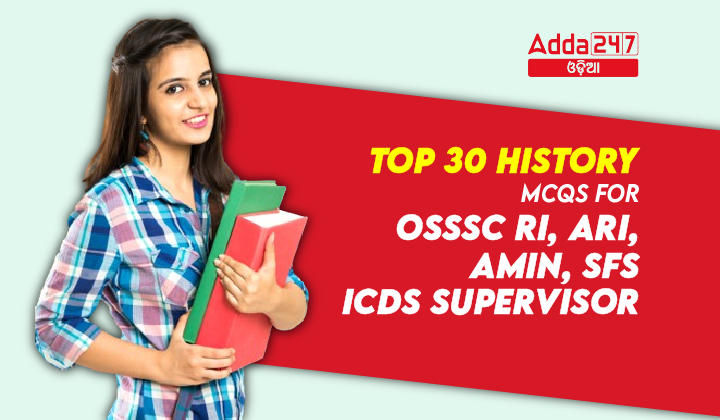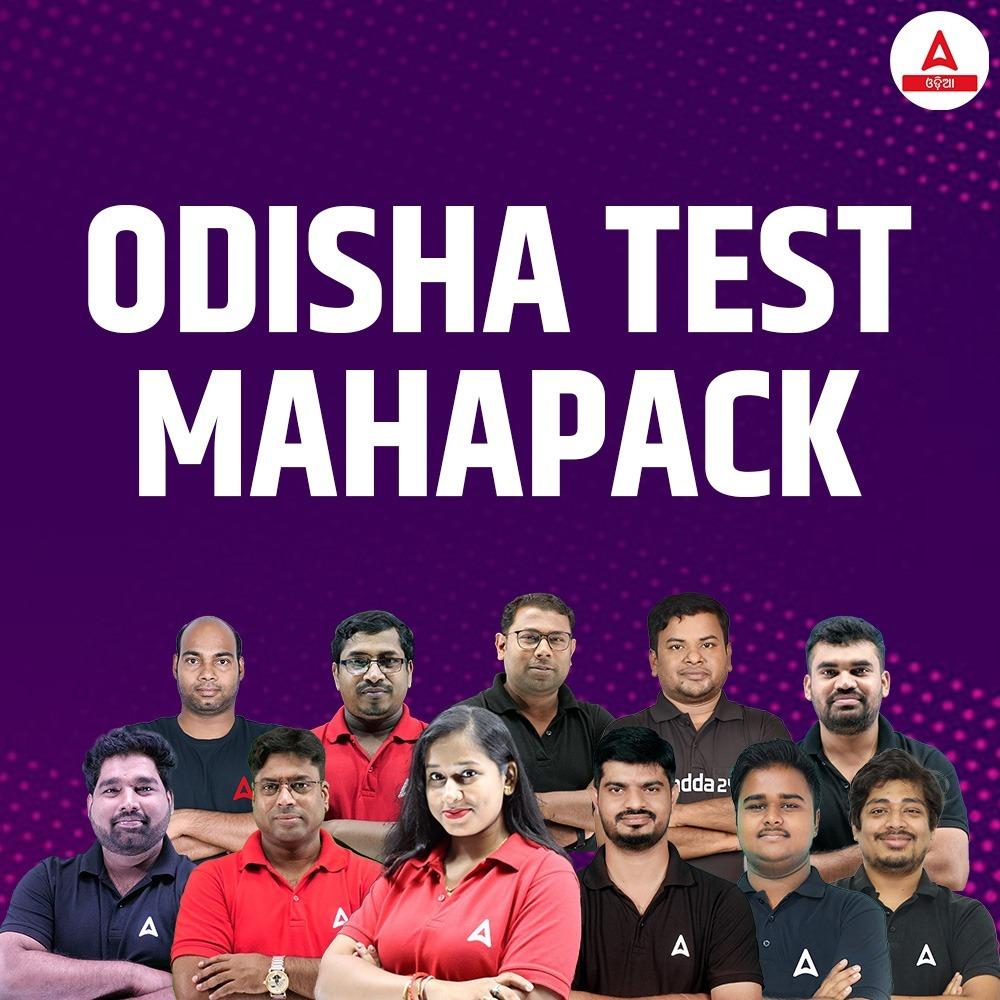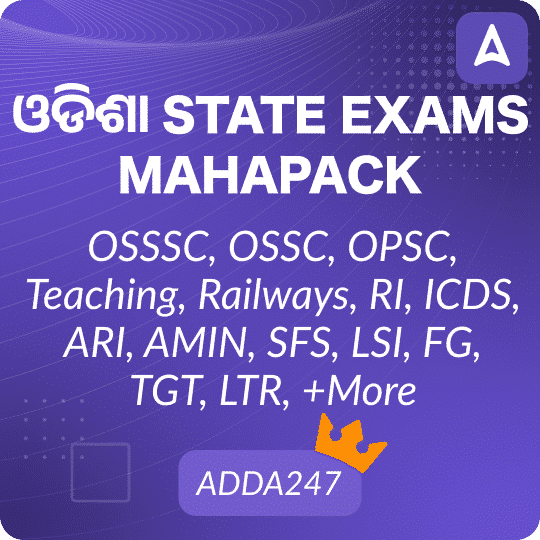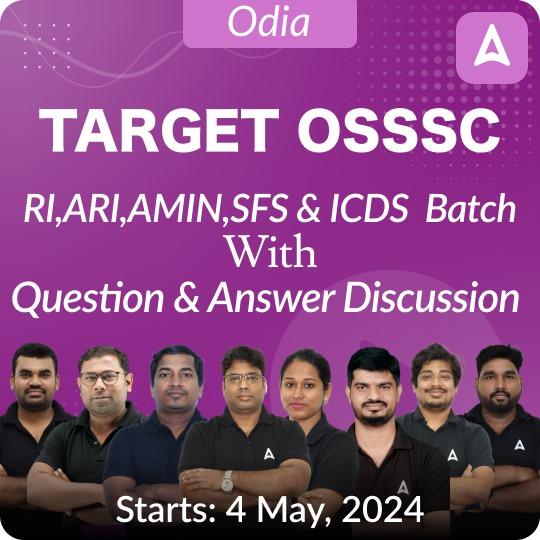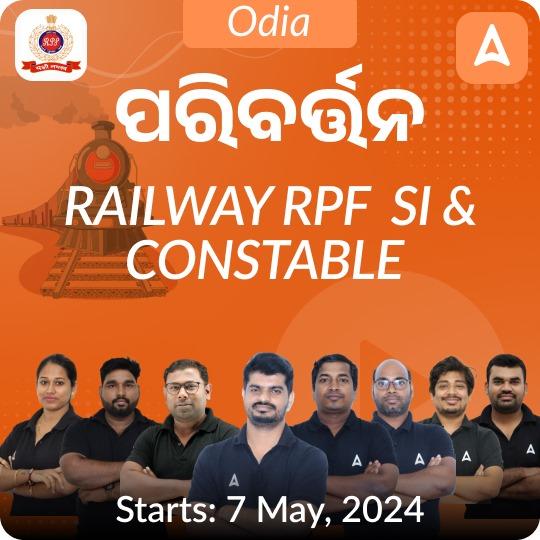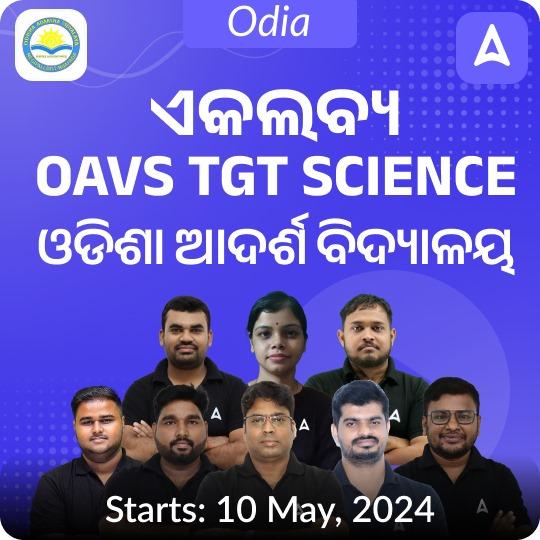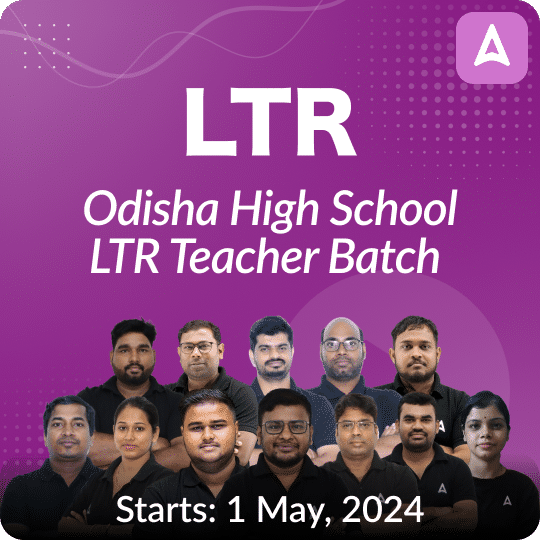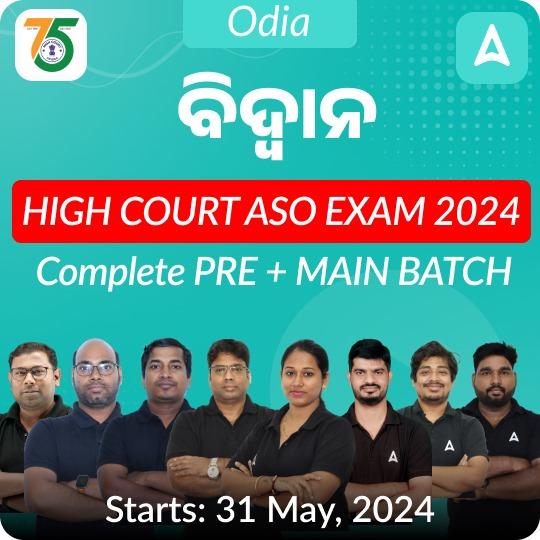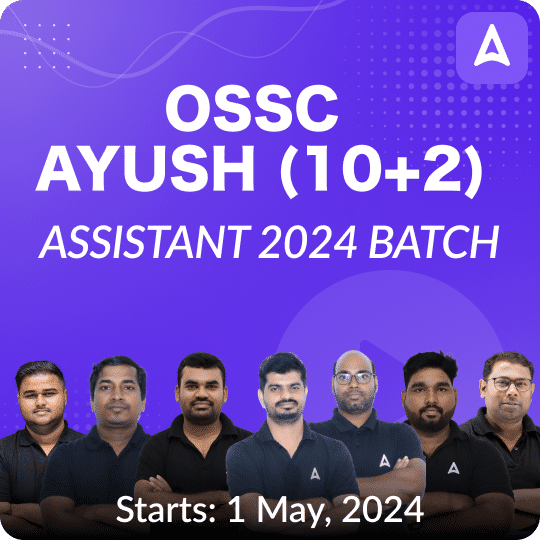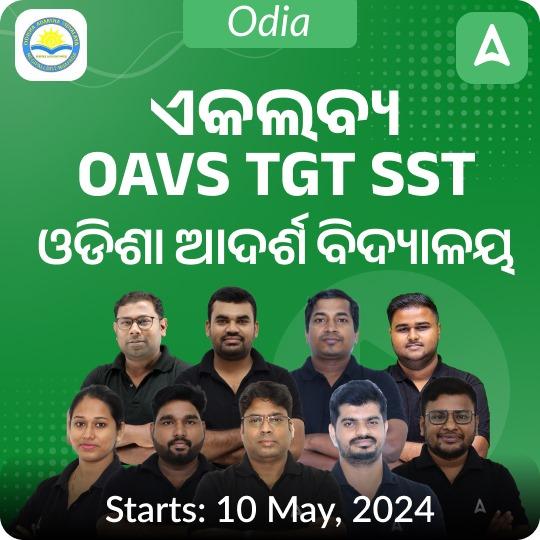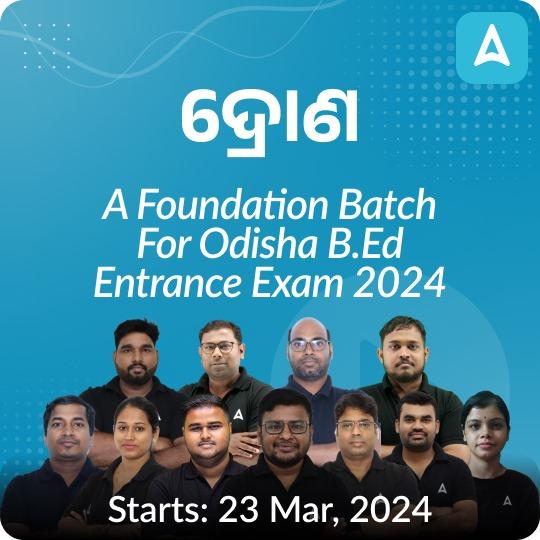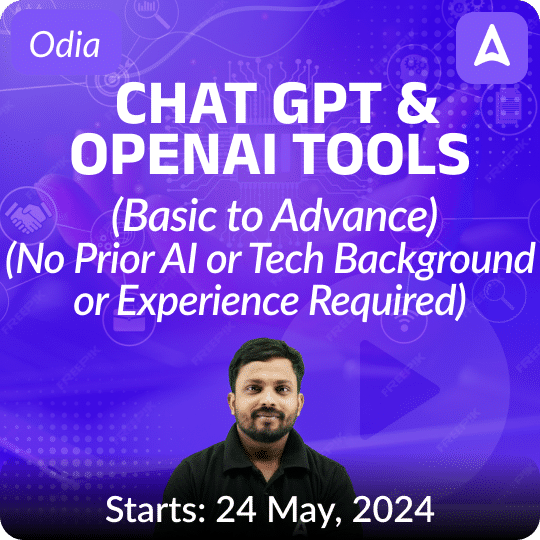History is a significant component of various competitive examinations, including those conducted by the Odisha Subordinate Staff Selection Commission (OSSSC) for the posts of Revenue Inspector (RI), Assistant Revenue Inspector (ARI), Amin, Statistical Field Surveyor (SFS), and Integrated Child Development Services (ICDS) Supervisor. To assist aspirants in their preparation, we’ve compiled a list of the top 30 multiple-choice questions (MCQs) covering crucial historical events, personalities, and concepts.
Top 30 History MCQs For OSSSC RI, ARI, Amin, SFS, ICDS Supervisor Exams
These questions cover various aspects of Indian history, providing a comprehensive review for OSSSC RI, ARI, Amin, SFS, and ICDS Supervisor exams. Good luck with your preparations!
- What distinguished the urban layout of Dholavira from other Indus Valley sites?
[A] Horizontal division into multiple parts
[B] Uneven division of the city
[C] Division into three distinct parts
[D] Absence of any defined divisionsCorrect Answer: C [Division into three distinct parts] - Which region of present-day India is home to the archaeological site of Dholavira?
[A] Rajasthan
[B] Maharashtra
[C] Gujarat
[D] PunjabCorrect Answer: C [Gujarat] - What architectural feature was unique to the layout of Dholavira among the Indus Valley Civilization sites?
[A] Circular city plan
[B] Centralized administrative building
[C] Water reservoirs with intricate channels
[D] Division of the city into multiple sectorsCorrect Answer: D [Division of the city into multiple sectors] - Which book records the conversation between Nagasena and Menander-I regarding Buddhism?
[A] Milindapanho
[B] Panhomenanda
[C] Nagapanho
[D] MenandapanhoCorrect Answer: A [Milindapanho] - Who was the Indo-Greek king who engaged in a dialogue with Nagasena regarding Buddhism?
[A] Menander-I
[B] Ashoka
[C] Chandragupta Maurya
[D] KanishkaCorrect Answer: A [Menander-I] - The last Mauryan ruler, who was killed by his Commander-in-Chief was __?
[A] Dasaratha
[B] Kun-ala
[C] Samprati
[D] BrihadrathaCorrect Answer: D [Brihadratha] - Who founded the Shunga Dynasty by killing the last Mauryan ruler?
[A] Chandragupta Maurya
[B] Ashoka
[C] Pushymitra Shunga
[D] BindusaraCorrect Answer: C [Pushymitra Shunga] - Which dynasty succeeded the Maurya Dynasty after the assassination of Brihadratha?
[A] Gupta Dynasty
[B] Shunga Dynasty
[C] Kushan Dynasty
[D] Satavahana DynastyCorrect Answer: B [Shunga Dynasty] - Who authored the famous book “Gulamgiri,” drawing parallels between the plight of lower castes in India and the condition of black slaves in America?
[A] B. R. Ambedkar
[B] Narayan Guru
[C] Jyotiba Phule
[D] M. P. PillaiCorrect Answer: C [Jyotiba Phule] - What was the main theme of Jyotiba Phule’s book “Gulamgiri”?
[A] Economic reforms
[B] Women’s empowerment
[C] Abolition of caste-based discrimination
[D] Political revolutionCorrect Answer: C [Abolition of caste-based discrimination] - Who is known as the Father of Muslim Renaissance in Bengal?
[A] Syed Ahmad Khan
[B] Ameer Ali
[C] Nawab Abdul Latif Khan
[D] Nawab Samiullah KhanCorrect Answer: C [Nawab Abdul Latif Khan] - On the suggestion of Rabindranath Tagore, the date of the partition of Bengal (October 16, 1905) was celebrated as what day?
[A] Rakhi Bandhan Day
[B] Brotherhood Day
[C] Solidarity Day
[D] Black DayCorrect Answer: A [Rakhi Bandhan Day] - Who was the Viceroy of India who announced the Partition of Bengal in 1905?
[A] Lord Mountbatten
[B] Lord Curzon
[C] Lord Irwin
[D] Lord DalhousieCorrect Answer: B [Lord Curzon] - What was the main reason behind the Partition of Bengal in 1905?
[A] Economic development
[B] Administrative convenience
[C] Religious tensions
[D] Linguistic differencesCorrect Answer: B [Administrative convenience] - Which Indian Nobel laureate suggested celebrating Rakhi Bandhan Day to foster brotherhood between Hindus and Muslims?
[A] Mahatma Gandhi
[B] Rabindranath Tagore
[C] Jawaharlal Nehru
[D] Subhas Chandra BoseCorrect Answer: B [Rabindranath Tagore] - In which year was the Partition of Bengal officially announced?
[A] 1901
[B] 1902
[C] 1905
[D] 1910Correct Answer: C [1905] - Who was the Nawab who played a significant role in advocating for Muslim modernization and education in Bengal?
[A] Syed Ahmad Khan
[B] Ameer Ali
[C] Nawab Abdul Latif Khan
[D] Nawab Samiullah KhanCorrect Answer: C [Nawab Abdul Latif Khan] - What was the primary contribution of Nawab Abdul Latif Khan to the Muslim community in Bengal?
[A] Economic reforms
[B] Political revolution
[C] Advocacy for modern education
[D] Religious revivalismCorrect Answer: C [Advocacy for modern education] - Which event triggered the celebration of Rakhi Bandhan Day in Bengal?
[A] Independence Day
[B] Partition of Bengal
[C] Birth of a national leader
[D] Victory in a warCorrect Answer: B [Partition of Bengal] - Who was the last Viceroy of India before independence?
[A] Lord Mountbatten
[B] Lord Curzon
[C] Lord Irwin
[D] Lord DalhousieCorrect Answer: A [Lord Mountbatten] - In which year was the “Poorna Swaraj” resolution adopted by the Indian National Congress?
[A] 1927
[B] 1928
[C] 1929
[D] 1930Correct Answer: C [1929] - Who presided over the first session of the All India Trade Union Congress in 1920?
[A] Purshottam Das Tandon
[B] Lala Lajpat Rai
[C] Kasturbhai Lalbhai
[D] Govind Vallabh PantCorrect Answer: B [Lala Lajpat Rai] - In which year was the British Committee of the Indian National Congress founded?
[A] 1885
[B] 1887
[C] 1889
[D] 1891Correct Answer: C [1889] - Who served as the first chairman of the British Committee of the Indian National Congress?
[A] William Wedderburn
[B] Mahatma Gandhi
[C] Jawaharlal Nehru
[D] Bal Gangadhar TilakCorrect Answer: A [William Wedderburn] - What was the objective of the British Committee of the Indian National Congress?
[A] To organize protests in India
[B] To raise awareness of Indian issues in Britain
[C] To establish trade relations with Britain
[D] To negotiate with the British governmentCorrect Answer: B [To raise awareness of Indian issues in Britain] - Which Indian leader presided over the Lahore session of the Indian National Congress where the “Poorna Swaraj” resolution was adopted?
[A] Jawaharlal Nehru
[B] Mahatma Gandhi
[C] Subhas Chandra Bose
[D] Vallabhbhai PatelCorrect Answer: A [Jawaharlal Nehru] - What significant decision was made regarding 26th January during the adoption of the “Poorna Swaraj” resolution?
[A] It would be observed as a national holiday
[B] It would be celebrated as Independence Day
[C] It would be marked as Republic Day
[D] It would be commemorated as Martyrs’ DayCorrect Answer: B [It would be celebrated as Independence Day] - Which session of the Indian National Congress is famously known as the “Lahore Session”?
[A] 1927
[B] 1928
[C] 1929
[D] 1930Correct Answer: C [1929] - Who served as the Secretary of the British Committee of the Indian National Congress?
[A] Jawaharlal Nehru
[B] William Digby
[C] Mahatma Gandhi
[D] Subhas Chandra BoseCorrect Answer: B [William Digby] - What did the British Committee of the Indian National Congress aim to achieve by its formation?
[A] To promote British rule in India
[B] To advocate for Indian independence in Britain
[C] To establish British-style governance in India
[D] To suppress nationalist movements in IndiaCorrect Answer: B [To advocate for Indian independence in Britain]

